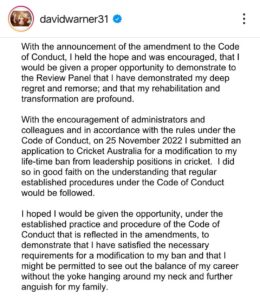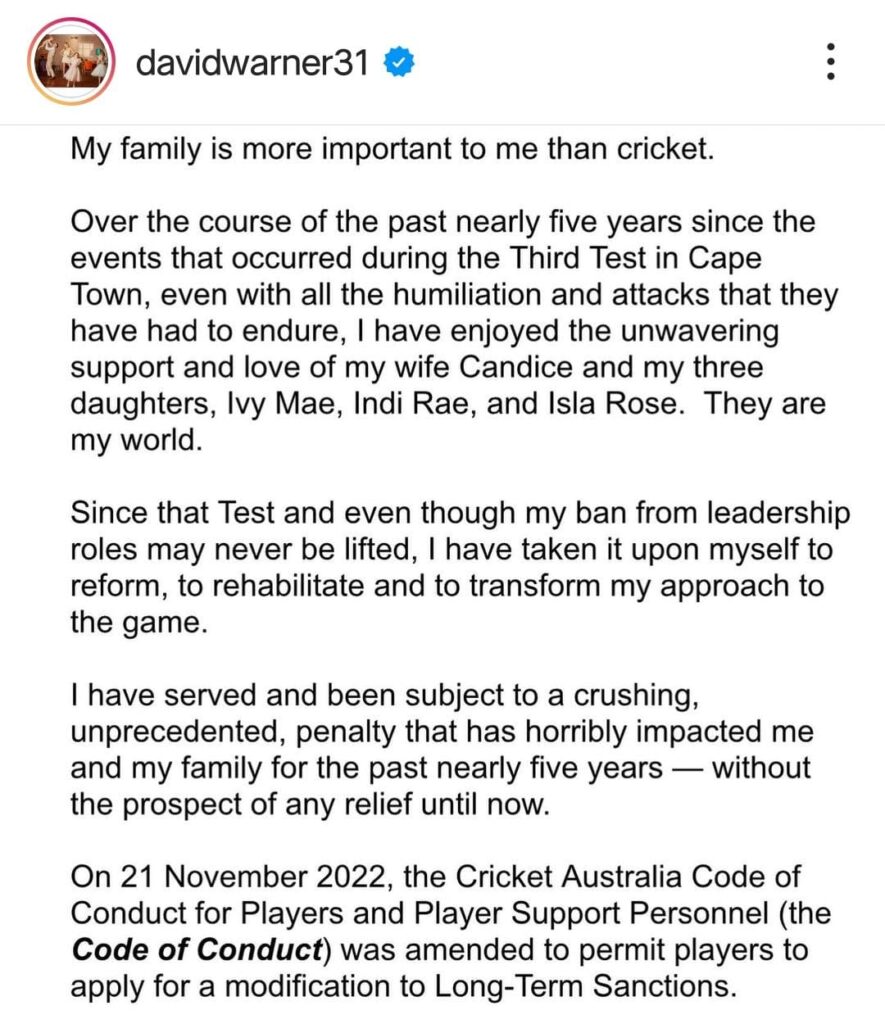Atreyo Mukhopadhyay
You committed a mistake and were caught red-handed. The jury was out and found you guilty. They handed a punishment. You accepted it. Life should move on after that. Isn’t it? Or should you keep getting punished for the offence you have already been punished for?
This appears to be the reason behind David Warner’s decision to withdraw his appeal against the lifelong leadership ban imposed on him after the ball tampering scandal during a Test match in South Africa in 2018. It caused a national furore in Australia and the Prime Minister stepped in. Warner, captain at that time Steve Smith and Cameron Bancroft were suspended for a year.
Warner served his term and came back playing cricket. With the backing of Cricket Australia, he registered an appeal against the clause in the laws that imposes the lifelong leadership ban. Also, he appealed for a private hearing. However, according to a statement released by Warner, the review panel set up to look into the matter and its counsel insisted on a public hearing and also kept harping on what exactly happened during the Cape Town Test. The opening batsman took it as affront on him, his family and the efforts he has made to change his attitude towards the game before saying that he was withdrawing his appeal.
It’s a complicated matter, with lots of nitty-gritty. There are legal angles, moralistic views, matters of ethics and principles and the laws of a land among other things. So it’s not easy to say if Warner is right or the review panel. But the question is, can someone keep getting punished for an objectionable act for which he has already been punished?
Ball tampering is certainly not an acceptable practice in any cricketing society. Yet, this is something that has been done for ages, in different forms, in various countries. Some used Vaseline, some used crown caps, some used fingernails to smoothen or scruff up one side of the ball or tinker with the seam. The Aussies in Cape Town used sandpaper. Because it gets the bowler an unfair advantage, it’s not on. But somehow, before the Australian trio, nobody received any harsh sanction, forget a one-year ban. That way, Warner, Smith and Bancroft had already served an exemplary and strict term.
After all that, to make Warner go through that again, keep reminding him of what he had done and attach a lifelong stigma for a ‘crime’ he has already paid for appears unfair and unkind. Justin Gatlin won a World Championship gold in men’s 100m sprint in 2017 after serving a doping ban. Paolo Rossi served a ban for match-fixing before bouncing back as the hero of Italy’s football World Cup win in 1982. Pakistan’s Mohammad Amir played international cricket after being jailed for spot-fixing. There are many instances of sportspersons given a second chance and making it count.

Did Warner, too, deserve one? Probably he did. One cannot keep paying for something he or she has already paid for. He made a mistake, lost a year at the prime of his career because of that, lost prestige, his family had to deal with the trauma and shame, isn’t that a hell of a lot? After that, when he is asking for a second chance, possibly he should have been granted a shot at redemption. Even proven criminals get a second chance in life after serving jail terms. There was merit in Warner’s emotionally charged statement saying that he cannot take it anymore.




